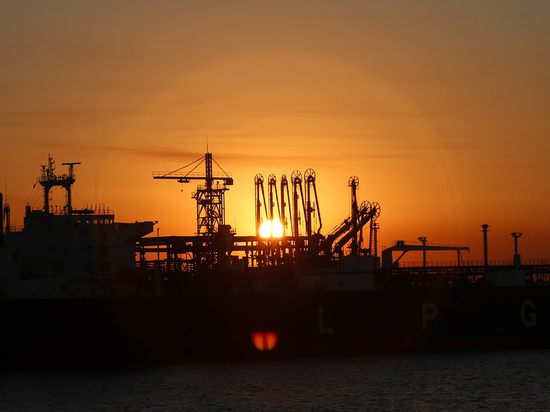The fall in investment and demand will throw the raw material industry back half a century
Russia is gradually losing its position as the world's most important gas power. Energy Minister Nikolai Shulginov doubts the development of the raw materials industry, having announced that by 2040 the production of «blue fuel» in the country risks falling by a third — in fact, to the levels of the mid-1970s. Europe's refusal to supply Russian hydrocarbons, sabotage at the Nord Stream and other geopolitical problems reduce confidence in the development of new promising fields in our country.

As Shulginov wrote in a letter sent to the government (he was quoted by the media), due to the refusal of our energy resources by European consumers, as well as due to the voluntary reduction in production, the level of hydrocarbon production in Russia may be much lower than even during the pandemic period. Longer-term forecasts seem generally catastrophic. As the minister believes, since it is impossible to instantly reorient domestic export flows of “blue fuel” from West Siberian fields to new foreign consumers (“for this, a new infrastructure needs to be created”), by 2040 gas production in our country is at risk of being reduced by a third — to 460 billion cubic meters. Our developers of underground storerooms will not remember such low production volumes since the 70s of the last century.
The reasons for the decline in the production of «blue fuel» is the possible depletion of easily recoverable reserves of the Cenomanian (the uppermost layer of hydrocarbon occurrence. -) deposits of Western Siberia. Production at these fields turned out to be in the main risk zone. According to Rosstat, in 2022 our companies were able to send a little over 670 billion cubic meters of gas to both domestic and foreign consumers. Compared to 2021, when production amounted to 763 billion cubic meters, the gap looks very significant.
However, not only the supply fell, but also the demand for energy. According to Eurostat, from August 2022 to January 2023, the countries of the Old World reduced gas consumption by more than 19%, dropping the consumption of this type of energy resource to the lowest seasonal rate in the last five years. In some European countries, gas consumption has fallen by 40-50%. In order to prepare strategic reserves of underground storage facilities for the next heating season, the EU countries decided to extend the agreement on voluntary reduction in hydrocarbon consumption for another year.
“The rate of decline in the production of “blue fuel” in our country is becoming like an avalanche,” says Sergey Suverov, investment strategist at Arikapital Management Company. — In January-February, gas production in Russia in annual terms fell by 9.5%. In the future, production figures may deteriorate due to the shutdown of two major routes to Europe: the Yamal-Europe pipeline, the supply of which is limited due to Western sanctions, and Nord Stream, which was destroyed due to sabotage. In turn, the increase in exports along the “Power of Siberia” highway directed in the Asian direction will be able to compensate for only less than a tenth of the dropped volumes.
Meanwhile, Igor Yushkov, an expert at the Financial University under the Government of the Russian Federation, believes that domestic raw material enterprises are quite capable of responding to the energy challenges of new foreign trading partners in the near future and ensuring a stable situation in the national fuel market. Cenomanian deposits, located at a depth of only 1-1.7 km, are mainly accumulations of methane and, accordingly, do not require processing costs. For many decades, these hydrocarbon reservoirs provided up to 80% of the production of domestic «blue fuel». However, it is worth considering that Gazprom has the richest reserves of «volatile» raw materials on the planet. The share of the monopoly in world resources is 15%, and in Russian resources it is almost 70%. According to various estimates, the domestic annual production potential is about 1 trillion billion cubic meters. The reserves of already proven hydrocarbon granaries, as well as deposits that have not yet been developed, promise to be enough for about 80-100 years.
However, problems may arise with the development of a promising resource base. According to Sergei Suverov, last year several major foreign service companies left the domestic energy market, which helped Russian partners equip and repair wells, as well as use elements to increase the return of energy carriers. “As a result, the cost of production may increase, as it will be necessary to look for alternative suppliers of much-needed equipment. It is possible that a certain number of wells will have to be closed,” the expert believes. — Recently, the policy of Russian mining holdings owned by the public sector has been aimed at distributing a significant share of profits among shareholders in the form of generous dividends. Perhaps, in order to avoid a fall in production in the future, it will be necessary to shift part of the declining income in favor of increasing investment items.

